Vampyr Blu-ray Movie
HomeVampyr Blu-ray Movie 
German and English versionsCriterion | 1932 | 1 Movie, 2 Cuts | 74 min | Not rated | Oct 03, 2017
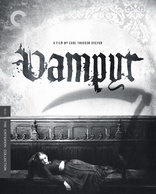
Movie rating
7.5 | / 10 |
Blu-ray rating
| Users | 4.3 | |
| Reviewer | 4.5 | |
| Overall | 4.3 |
Overview
Vampyr (1932)
A drifter obsessed with the supernatural stumbles upon an inn where a severely ill adolescent girl is slowly becoming a vampire.
Starring: Julian West, Maurice Schutz, Rena Mandel, Sybille Schmitz, Jan HieronimkoDirector: Carl Theodor Dreyer
| Foreign | Uncertain |
| Horror | Uncertain |
| Supernatural | Uncertain |
| Fantasy | Uncertain |
Specifications
Video
Video codec: MPEG-4 AVC
Video resolution: 1080p
Aspect ratio: 1.19:1
Original aspect ratio: 1.2:1
Audio
German: LPCM Mono (48kHz, 24-bit)
German: Dolby Digital Mono
Subtitles
English
Discs
Blu-ray Disc
Single disc (1 BD)
Playback
Region A (locked)
Review
Rating summary
| Movie | 5.0 | |
| Video | 4.0 | |
| Audio | 4.5 | |
| Extras | 5.0 | |
| Overall | 4.5 |
Vampyr Blu-ray Movie Review
Reviewed by Dr. Svet Atanasov October 1, 2017Carl Theodor Dreyer's "Vampyr" (1932) arrives on Blu-ray courtesy of Criterion. The supplemental features on the disc include an alternate version of the film; audio commentary by critic and filmmaker Tony Rayns; documentary film produced by Jorgen Roos; visual essay prepared by film scholar Casper Tyberg; and more. Also included with this release is a 215-page book featuring Carl Theodor Dreyer and Christen Jul's original screenplay and Sheridan Le Fanu's story "Carmilla", a source for Vampyr; as well as 40-page illustrated booklet featuring critical writings on the film and the restoration and reconstruction of the German version by Mark La Fanu, Kim Newman, Martin Koerber, and Herman G. Weinberg and Gretchen Weinberg. In German, with optional English subtitles for the main feature. Region-A "locked".

The monumental impact that Carl Theodor Dryer’s Vampyr has had on generations of different directors and their work truly cannot be overstated. I would like to give a couple of examples that I think prove it.
Sometime after the year 2000 I started tracking down many of Aleksandr Sokurov’s early films, and the more I saw of them, the clearer it became that there was a side of their visual identity that essentially mimicked that of Dryer’s Vampyr. I found this quite surprising because the gap between the two directors really could not have been any bigger. In Sokurov’s The Second Circle, for instance, where the main protagonist returns to a remote Siberian village to arrange a proper funeral for his deceased father the similarities in terms of ambience are just too obvious. Like in Vampyr here there are only a few lines of dialog and the unique hazy look is accomplished with the type of light management and filters that Dryer had essentially promoted decades earlier with entirely different techniques and equipment. Even more of the same similarities can be observed in Sokurov’s Whispering Pages, which is about an outcast who wanders the streets of a Russian city from the beginning of the last century that has started to disintegrate but no one seems to care. In this particular film Sokurov even overlaps the real and the surreal in quite the same fashion that Dryer does towards the end of Vampyr.
The influence of Vampyr is also very easy to detect in the films of Canadian auteur Guy Maddin, though as darkly surreal and fluid as many of them are they also frequently tend to have this very abstract sense of humor that essentially places them in a category of their own. Still, take a closer look at Keyhole, The Saddest Music in the World, and especially Dracula: Pages from a Virgin's Diary and you will quickly discover that in addition to having a wide range of visual similarities these films also routinely twist reality by following the blueprint that Dreyer laid out in Vampyr. Maddin simply has a bigger bag of cinematic tricks to choose from and a wilder imagination that pushes his films in a completely different direction.
The above examples are not meant to make a case that at some point during their careers Sokurov and Maddin studied Dryer’s Vampyr and then consciously set out to imitate different aspects of it, but to highlight the fact that Vampyr is much more than just a great Gothic horror film. It is actually a breathtakingly bold and in a way even prophetic experimental project that uses the story about Allan Gray (played by producer Baron Nicolas “Niki” de Gunzburg) and his slow transition into the world of the undead to show that the film medium can be every bit as magical as some years later the great Swedish master Ingmar Bergman would insist it is. Dreyer simply realized it long before other directors did, and then when the right opportunity came along followed his instincts to prove it in the best way he could.
Dryer and the great cinematographer Rudolph Mate (The Passion of Joan of Arc) shot Vampyr on location in France and primarily with non-professional actors. It was Dryer’s first sound film, though according to Baron de Gunzberg during the actual production the footage was shot silent. Later on, the sound bits were inserted while the film was edited at the UFA studios in Berlin. Three versions of Vampyr were prepared for distribution: German, French, and English. (In addition to the restored and reconstructed German version, this release contains an alternate version with English text, which was prepared by Criterion).
Vampyr Blu-ray Movie, Video Quality 
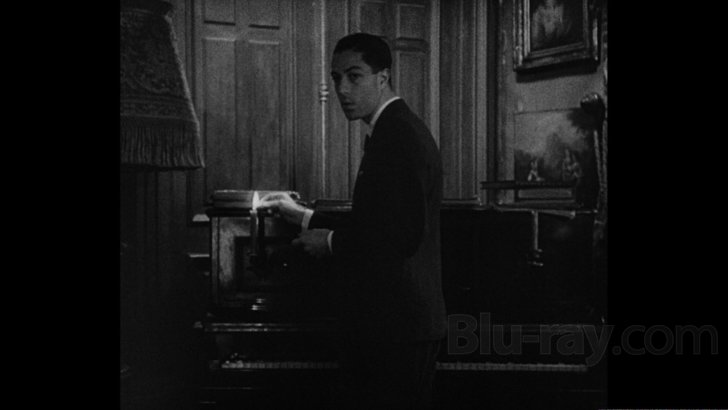
Presented in aspect ratio of 1.19:1, encoded with MPEG-4 AVC and granted a 1080p transfer, Carl Theodor Dreyer's Vampyr arrives on Blu-ray courtesy of Criterion.
The following text appears inside the booklet provided with this Blu-ray release:
"This high-definition digital transfer was created on a Spirit 2K DataCine from a 35mm fine-grain master positive restored by Cineteca di Bologna. Additional restoration was carried out by the Criterion Collection. Thousands of instances of dirt, debris, and scratches were removed using MTI Film's DRS, while Digital Vision's Phoenix was used for jitter, flicker, small dirt, grain, and noise management. The soundtrack was remastered from the 35mm optical soundtrack negative. Clicks, thumps, hiss, and crackle were manually removed using Pro Tools HD and iZotope RX.
Telecine supervisors: Thomas Christensen/Danish Film Institute, Lee Kline.
Telecine colorist: Jorgen Christiansen/Digital Film Lab."
The original negative for Vampyr no longer exists and the current restoration, which was completed in 1998, is essentially a reconstruction that uses footage from partially surviving 35mm German and French prints. Obviously, this means that in terms of density there are fluctuations that can be traced right back to the original elements that were accessed. This being said, the end result is still very pleasing, and while some transitions are obvious, there are no distracting anomalies that would affect negatively your viewing experience. Also, you should keep in mind that different techniques were used to give select parts a type of hazy, or dreamy, appearance that enhance the desired atmosphere (you can see good examples in screencaptures #4, 13, and 15). Elsewhere light and shadow are also utilized in interesting ways for a different type of effect (see screencapture #9). In other words, while there are most certainly source limitations the film has a bold and unique cinematic style that actually promotes effects that can trick you to conclude that they were introduced by imperfections. The grading is convincing, but time has left its mark and small fluctuations can be spotted. Image stability is good, but there are a few areas where some shakiness remains. Lastly, I would say that it is very obvious that a lot of work was done to make sure that the film looks as healthy as possible because scratches and especially the type of white specks that can often be seen on older films from the same era have been removed as best as possible. My score is 4.25/5.00. (Note: This is a Region-A "locked" Blu-ray release. Therefore, you must have a native Region-A or Region-Free player in order to access its content).
Vampyr Blu-ray Movie, Audio Quality 
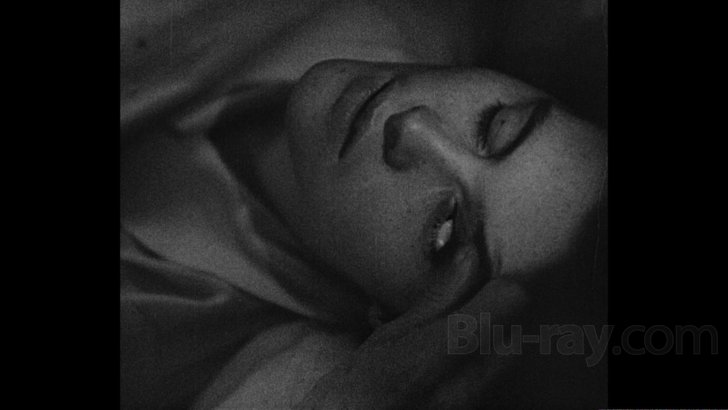
Two versions of Vampyr are included on this release: the restored and reconstructed German version, and an alternate version with English titles, which was created by Criterion. The former comes with a German LPCM 1.0 track, while the later has a German Dolby Digital 1.0 track.
I think that the end result is certainly convincing as the lossless audio has quite good depth, or certainly for a film from the era, but I went back and did some comparisons between the lossless and lossy tracks and to be honest I could not hear a drastic difference in quality. Also, I think that only an expert on Vampyr can definitively tell just how accurately the audio was reconstructed because there are a few areas where I could spot transitions but there is also some unevenness that is very difficult to analyze. Regardless, I think that just as it was the case with the DVD release the restored and reconstructed audio makes it easy to enjoy the film as well as surviving elements allow.
Vampyr Blu-ray Movie, Special Features and Extras 
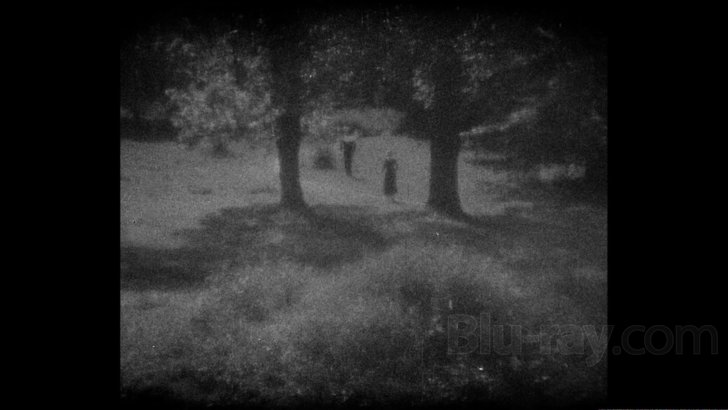
- English-Text Version - this version of Vampyr replaces the on-screen German text, which has traditionally been very difficult to subtitle in English (and then read the English subtitles), with an English translation that mimics the original cinematic style of the film. It was created by Criterion. In German, with optional English subtitles. (German Dolby Digital 2.0/1080p).
- Audio Commentary - an outstanding audio commentary by critic and filmmaker Tony Rayns, who discuses the history of Vampyr and analyzes its groundbreaking cinematic style and narrative. The commentary was recorded in 2008.
1. The premiere
2. Subjectivity
3. Shadows in the ice factory
4. Offscreen space
5. Text and illustrations
6. Dialogue and the book
7. Sight regained
8. Blood
9. Playing the genre
10. Action
11. Narrative uncertainties
12. A third self
13. Unequivocally subjective
14. Censored scenes
15. The remaining bad guys
16. Censoring the doctor's death
- Carl Th. Dreyer - this archival documentary film examines the life and legacy of Carl Theodor Dreyer. It was produced by filmmaker Jorgen Roos in 1966 for the Danish Film Institute. In Danish and French, with optional English subtitles. (30 min, 1080p).
- Visual Essay - this visual essay focuses on the unique style and narrative construction of Vampyr, as well as its history and lasting appeal. It was created by Casper Tyberg, a Carl Theodor Dreyer scholar at the University of Copenhagen in Denmark. In English, not subtitled. (36 min, 1080i).
- Radio Broadcast - this recording of director Carl Theodor Dreyer reading an essay on film was broadcast in 1958 as part of an episode of film scholar Gideon Bachmann's WBAI radio program The Film Art. In English, not subtitled. (24 min, 1080p).
- Booklet - 40-page illustrated booklet featuring:
- "Vampyr's Ghosts and Demons" by Mark La Fanu
- "Vampyr and the Vampire" by Kim Newman
- "Some Notes on the Restoration of Dreyer's Vampyre" by Martin Koerber
- An Interview with by Baron Nicolas de Gunzberg" by Herman G. Weinberg and Gretchen Weinberg
- Technical credits
- Book - 215-page book featuring Carl Theodor Dreyer and Christen Jul's original screenplay and Sheridan Le Fanu's 1872 story "Carmilla", a source for Vampyr.
Vampyr Blu-ray Movie, Overall Score and Recommendation 
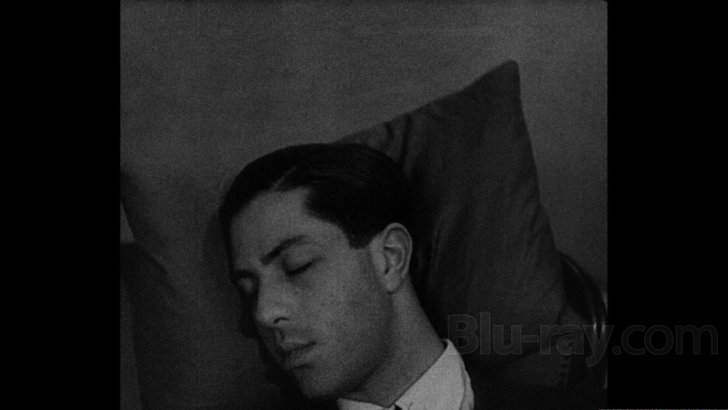
Carl Theodor Dreyer's Vampyr has never been ignored or forgotten, but since the VHS era it has enjoyed a renaissance that has prompted a lot of people to reevaluate it. It really is a lot more than just a great Gothic horror film -- it is an uncharacteristically bold and in some ways even prophetic mind-bender that I think has directly and indirectly influenced the work of generations of different directors across the globe. Criterion's upcoming Blu-ray release is sourced from a very good 2K restoration and reconstruction of the German version of Vampyr from 1998, though as Martin Koerber speculates in an archival article that appears on the booklet that is included with it perhaps it won't be too long before restorations of other versions are completed. VERY HIGHLY RECOMMENDED.
Similar titles
Similar titles you might also like

Nosferatu the Vampyre 4K
Nosferatu: Phantom der Nacht
1979

The Golem
Der Golem, wie er in die Welt kam
1920

Nosferatu
Nosferatu, a Symphony of Horror | Nosferatu, eine Symphonie des Grauens | 2006 Restoration, Hans Erdmann/Heller compilation score
1922

Lust of the Vampire
I vampiri
1957

Viy
Вий / Spirit of Evil
1967

Frankenstein's Bloody Terror 3D
Kino Cult #35 / La marca del hombre lobo 3D
1968

A Girl Walks Home Alone at Night
دختری در شب تنها به خانه میرود / Dokhtari dar šab tanhâ be xâne miravad
2014

Devil's Kiss
La perversa caricia de Satán
1976

House
ハウス / Hausu
1977

The Phantom Carriage
Körkarlen
1921

The Vampire's Night Orgy
La orgía nocturna de los vampiros
1974

Häxan
includes 1968's "Witchcraft Through the Ages" version
1922

Fangs of the Living Dead
Malenka / Malenka, the Niece of the Vampire / Malenka, the Vampire / The Vampire's Niece
1969

Young Hannah, Queen of the Vampires
La tumba de la isla maldita
1973

The Living Dead Girl
La morte vivante
1982

Cronos 4K
1992

The Blancheville Monster
1963

The Blood Spattered Bride
La novia ensangrentada
1972

Dark Waters
Temnye vody
1993

Lake of Dracula
Noroi no yakata: Chi o suu me
1971